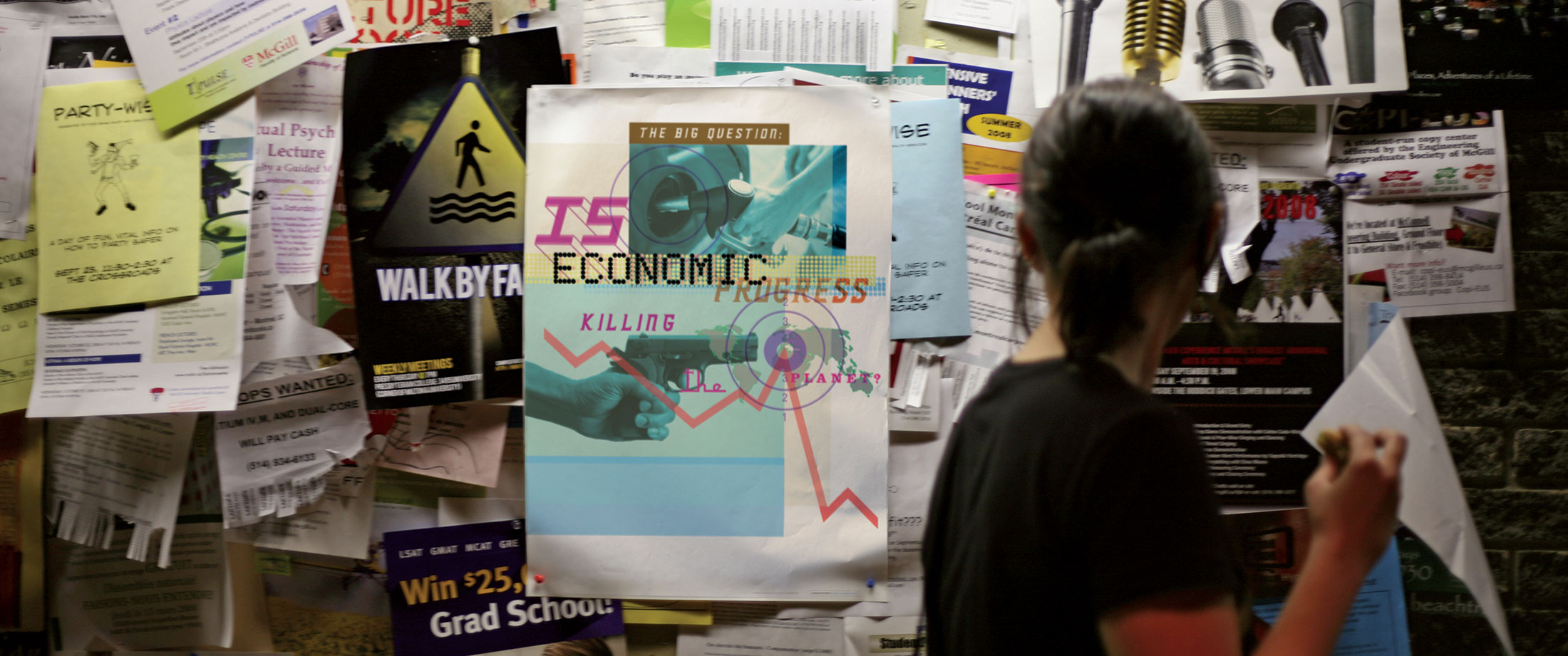Radical Paradigm Shifts

The methodology and ideology of modern economics are built into the frameworks of educational methods, and absorbed by students without any explicit discussion. In particular, the logical positivist philosophy is a deadly poison which I ingested during my Ph.D. training at the Economics Department in Stanford in the late 1970s. It took me years and years to undo these effects. Positivism uses clever arguments to make you deny what you feel in your bones to be true, and make you believe what your heart says must be false – for example, our supposed knowledge of subjective probabilities of unknown events. The roots of the problem go back to the famous Cartesian argument that “I think therefore I am”. Although it is clever piece of logic, it has a deadly effect. I know that I am alive because I can feel the blood flowing in my veins, the tingling of my skin, and a thousand other bodily sensations. “I feel therefore I am”. Denying this experience as a valid source of knowledge reduces me to a brain floating in a vat, which is exactly what logical positivism entails. In fact, despite Descartes, it is impossible to reason our way to certainty. We can only create an illusion of certainty. Descartes’ argument is deeply flawed, and illustrates the weakness of human reason. When we formulate the concept of “I”, isn’t existence automatically part of this? Did I not exist when I was a baby, and was unable to formulate these thoughts? Do I blink out of existence when I go to sleep? If someone has a hard time grasping philosophical concepts, is his existence thereby of a lesser quality? This and many other difficulties make this argument incoherent.
Modern economics is much like this. It starts by making assumptions which are dramatically in conflict with everything we know about human behavior (and firm behavior) and applies mathematical reasoning to situations where it cannot be applied, quantifying the unquantifiable and coming to completely absurd and ridiculous conclusions. Nonetheless, speaking from personal experience, the brainwashing is powerful and effective. It is a slow and painful process to undo. I have often thought about launching a “Positivists Anonymous” club, to help others attempting the same transition, of unlearning positivism.Based on my own experiences and difficulties in unlearning, and also the experiences of Keynes and many others who have unsuccessfully battered the gates of the citadel of neoclassical economics, I have come to the conclusion that this is a hopeless task. We do not expect to be able to convert the economists. This revolution will not be televised. Our only hope is to work on an external revolution – take the message to outsiders, not to economists. [Recent surveys show that despite the collapse and rejection of positivism in philosophy, economists continue to think in positivist terms.] Even among non-economists, the collateral damage done by positivism and by neo-liberal thinking, is immense.This article is a preliminary examination of the difficulties in making a paradigm shift; that is, I will not discuss the major second step of what an alternative paradigm could be, and how we could create and promote it. Awareness of these difficulties is necessary for those who attempt to launch a revolution, since we need to create converts to a new paradigm. Economists are hopeless as a target audience, but even non-economists will be tough nuts to crack if our message is radical. This is because economic frameworks have become widely accepted – witness the popularity of Freakonomics. Nonetheless, it seems necessary to make the effort to save humankind from impending catastrophe, not just on the environmental front, but on many others as well.
Ask Your Professor:
How does climate change factor into our study of economics?
The necessity and difficulty of shifting our economic paradigms:
In the wake of the Global Financial Crisis, the failure of economic theories, and of economists, to provide any warnings, analysis, or remedies, became glaringly obvious to all. The Queen of England went to the London School of Economics to ask “Why did no one see it coming?”
Are the self-organizing principles of markets that have emerged over the past 300 years, in conflict with the self-organizing principles of ecosystems that have evolved over the past billion years?
The US Congress constituted a committee to investigate why “economics, a field that aspires to be a science... (but)... generally accepted economic models inclined the Nation’s policy makers to dismiss the notion that a crisis was possible.” General discontent with economics has been captured in books too numerous to list; as a small sample chosen at random, consider Steve Keen’s Debunking Economics: The Naked Emperor of the Social Sciences, Joe Earle, Cahal Moran and Zach Ward-Perkins: The Econocracy: The Perils of Leaving Economics to the Experts, and Phillip Pilkington: The Reformation in Economics: A Deconstruction and Reconstruction of Economic `.
Should we slow down fast money with a Robin Hood Tax?
Many leading economists have expressed serious dis-satisfaction with the profession as a whole. John Cassidy’s article “After the Blowup...” in The New Yorker describes his interviews with apostates from the Chicago creed. Krugman wrote that the “Profession as a whole went astray because they mistook the beauty of mathematics for truth.” David Romer wrote that economists’ “dismissal of fact goes...(so)... far beyond post-modern irony” that it should be called “post-real”. He wrote that the profession has been moving backwards, losing precious insights gained. Olivier Blanchard, Chief Economist at IMF writes that DSGE models make “assumptions profoundly at odds with what we know about consumers and firms”. This is just a small sampler; we can easily find many other similar statements from leading economists, and practitioners intimately involved with finance and central banks on a global level.
What do you think of Herman Daly’s idea of a steady state economy?
Many leading economists have expressed serious dis-satisfaction with the profession as a whole. John Cassidy’s article “After the Blowup...” in The New Yorker describes his interviews with apostates from the Chicago creed. Krugman wrote that the “Profession as a whole went astray because they mistook the beauty of mathematics for truth.” David Romer wrote that economists’ “dismissal of fact goes...(so)... far beyond post-modern irony” that it should be called “post-real”. He wrote that the profession has been moving backwards, losing precious insights gained. Olivier Blanchard, Chief Economist at IMF writes that DSGE models make “assumptions profoundly at odds with what we know about consumers and firms”. This is just a small sampler; we can easily find many other similar statements from leading economists, and practitioners intimately involved with finance and central banks on a global level.
Do economists suffer from an academic inferiority complex called “physics envy”?
In “The Structure of Scientific Revolutions”, historical studies by Kuhn show that there are two distinct phases in the progress of scientific knowledge. In the phase he calls “normal science”, a fixed paradigm is applied to solve problems of explaining phenomena and manipulating the world via experiments. However, sometimes progress in knowledge occurs through a second type of event called “scientific revolution”, when an existing paradigm is overthrown, and replaced by a new and different paradigm. Paradigms represent ways of looking at the world, with frameworks, concepts, axioms, and methods. Different paradigms are incommensurable – terms in one paradigm are meaningless in another. For example, while the term “just price” was meaningful to scholastics, it has no meaning within a neoclassical framework. One cannot achieve paradigm shifts by arguments, since concepts and terms of a new paradigm make no sense in terms of the old paradigm. Instead, what is required is to put aside one way of looking at the world, and attempt to understand another way of looking at the same world. It is this putting aside – unlearning the old ways – which creates the greater part of the difficulty in achieving paradigm shifts. In the familiar picture below, when the person looking at the young woman describes the old lady’s eye as an “ear”, those fixated on the old paradigm consider this as crazy. As Keynes put it, “The difficulty lies, not in the new ideas, but in escaping from the old ones, which ramify, for those brought up as most of us have been, into every corner of our minds.” It is only by laying aside one coherent way of looking at the world that it becomes possible to visualize alternatives.

Even though Keynes succeeded in escaping from the old ideas, most of his contemporaries and followers never did. Phenomena which were central to Keynesian analysis in his “General Theory” were never understood by mainstream economists, trapped by the mindset created by conventional economic training. As noted by many, the Samuelson-Hicks interpretation of Keynes in terms of the IS-LM analysis has very little in common with the ideas of Keynes. This mis-interpretation of Keynes which is widely known as Keynesian economics today, rejects at least three of the central insights of Keynes. Briefly, these are the failure of neutrality of money, genuine uncertainty about the future (as opposed to risk), and the consequent essential role of un-anchored expectations in driving the economy. That is why Keynes said that “I am not a Keynesian”. He expressed his frustration at the inability of his fellow economists to follow him: “The classical theorists resemble Euclidean geometers in a non-Euclidean world who, discovering that in experience straight lines apparently parallel often meet, rebuke the lines for not keeping straight as the only remedy for the unfortunate collisions which are occurring. Yet, in truth, there is no remedy except to throw over the axiom of parallels and to work out a non-Euclidean geometry.”
Why is there nothing about Islamic economics in our curriculum?
In order to progress, it is necessary to pay more attention to WHY it is so difficult to make the transition from a Euclidean world to a non-Euclidean world. To understand this difficulty, we have to first unlearn a widely believed mistaken conception of logical positivists about observations and facts. The Logical positivists, building on a widely accepted Western philosophical tradition, regarded “observations” of what is out there as facts of experience, objective, free of doubt and ambiguity, equally available to all, and verifiable by all. Obviously, this fails if what we observe is due to an interaction between the objective and unique reality out there, and our subjective frameworks which we use for perception of this reality. As the Heisenberg Uncertainty Principle states, and as amazing modern physics establishes beyond doubt, the act of observation affects the behavior of that which is observed. But to take an easy to understand example, whether we see the young lady or the old lady – note that we can only see one of the two at any one time – is clearly determined by our subjective framework, and is not part of the picture.

I wonder . . .
is this profession I’m getting into ... a cold, theoretical game
or ... a profoundly personal discipline that goes to
the heart of who we
are as human beings?
Even though the point is almost trivial, it is of vital importance for what follows, so let me amplify and explain further. When a baby is born into the world, his eyes and ears are assaulted by a rich range of sensory impressions, which make no sense and have no meaning. Exactly the same sensory impressions become very meaningful and clear as learning takes place, which allows him to parse sounds, and to process visual data in images of three dimensional objects. Obviously, our internal processing equipment is of central importance in the process of assembling observations into a three dimensional image of the world around us. Another way to think about the same thing is to consider the problem of computer vision. All a computer camera sees is a flat bit stream of colored points. This binary matrix of data on visual sensory input, must be resolved into a three-dimensional image. A HUGE amount of programming, which relies on knowledge of the environment, is required to be able to process this data and convert it into an image. The child learns to see objects and hear and parse sounds on the basis of experience, which constantly rewards correct parsings and punishes failure to visually comprehend the environment. A famous Stanford experiment showed cats brought up in a vertically striped world were unable to see horizontal stripes. Similarly, children brought up with languages with unusual sounds learn to discriminate and hear intonations and consonants which can never be heard by others in different linguistic environments, where such sounds are not present. This shows that our experiences can fix the frameworks we use to see the world beyond the possibility of change.

The outcome of all this discussion can be summarized metaphorically by saying that we all use glasses to see the world. The direct world out there is a jumble of sensations – a matrix of points – which makes no sense by itself, and must be interpreted using our own frameworks, represented by the glasses. This means that ALL observations are tinged with subjectivity, and interpreted within the frameworks created by our past experiences, successes and failures, in viewing the world.A paradigm shift occurs if we remove the glasses we use to view the world, and instead put on a different pair of glasses. A famous experiment conducted by Professor Theodor Erismann, of the University of Innsbruck put reversing glasses on his student and assistant Ivo Kohler. It caused extreme disorientation and discomfort at first, but after about a week of stumbling around, he adapted to this new way of seeing the world. His subjective interpretative equipment learned to interpret the reversed image by performing an additional reversal within the brain to arrive at a correct image of the world. Now, when the glasses were removed, the world appeared to be upside down to Ivo. On a much larger scale, this is what happened in Europe due to the Great Transformation which transformed traditional society to a market society, where everything is viewed a commodity for sale. Later, these ways of thinking were spread throughout the world by colonization and Western education. We learned to value everything according to its market price, and forgot that the most precious things cannot be purchased. Then it became easy to kill a million children, and destroy entire nations for corporate profits.
We can now understand the extreme difficulty of creating a paradigm shift. For those who have spent lifetimes learning to see the world with a specific pair of glasses, these glasses become melded into the flesh, and are impossible to remove. After failing to convince his contemporaries about his Quantum theory, Max Planck disappointedly realized that science progresses one funeral at a time. Thomas Kuhn also noted that paradigm shifts do not occur by converting those faithful to the old paradigm, but by inducting the young into the new worldview. Unlike the older generation, for younger and more flexible minds, it is possible to take off glasses manufactured in the Euclidean factory, and put on non-Euclidean glasses. Nonetheless, it is still a disconcerting and uncomfortable experience, which will not be undertaken unless there is some expectation of a great reward for this struggle and sacrifice. The costs of this paradigm shift must be paid upfront – one loses the ability to talk to the mainstream when one describes the world using an alien framework. The rewards are in the future, and highly speculative and uncertain. Nonetheless, for reasons explained elsewhere, it seems essential to make the effort – the survival of humanity is at stake.

Asad Zaman is a professor, social scientist, and economist. He is the Vice Chancellor of the Pakistan Institute of Development Economics, a member of Monetary Policy Committee of State Bank of Pakistan, Editor of International Econometric Review, and the former Director General of International Institute of Islamic Economics at ILU.
Join the Third Force Collective to access our revolutionary briefings.
This isn't a paywall. You can close it if you just want to read the article below it. But our aim is to win the planetary endgame — we want to catalyze a moment of truth, a stunning reversal of perspective from which corpo-consumerist forces never fully recover. For that we need you.






